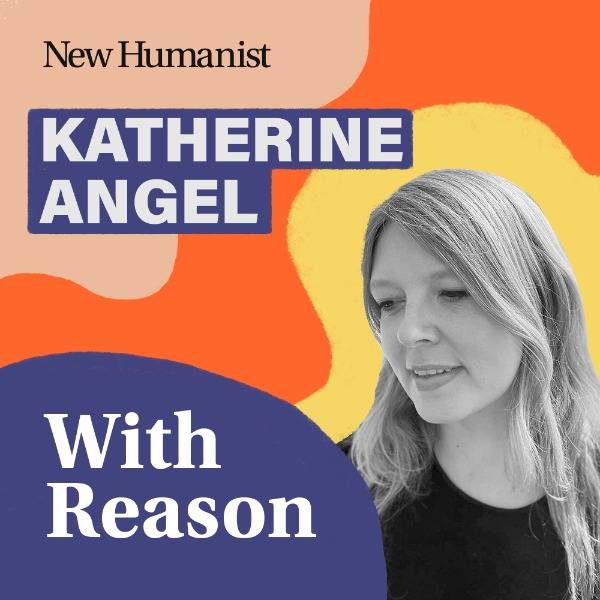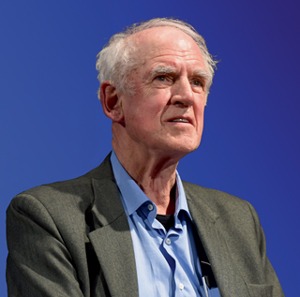
It is common accepted wisdom that to understand something, you must know its history. In his new book "How History Gets Things Wrong: The Neuroscience of our Addiction to Stories" (MIT Press), Alex Rosenberg - R. Taylor Cole Professor of Philosophy at Duke University - argues that this is wrong. Our attachment to history as a vehicle for understanding has a long Darwinian pedigree and a genetic basis. Neuroscience reveals that human evolution shaped a tool useful for survival into a defective theory of human nature. But, Rosenberg argues, the stories historians tell of what happened and why can be not only wrong but harmful. Here, he explains his key arguments.
When and why did you start questioning the way we understand history?
I love history, especially narrative history and biography. It’s practically the only thing I have ever read, since I was a kid. My shelves groan with multivolume biographies, especially of political figures. But as with flood tide of "revisionist history" of nearly every major event, period, epoch, in the past, the stories kept changing, even when there was no significant new data- archives, letters, witnesses, autobiographies. Eventually I realised I was reading these works not for what they could teach me. They couldn't provide me with real, reliable, useful knowledge. They were too contradictory, they didn’t add up to any one conclusion, or even move in the same direction to some approximate truth. I was reading the narratives because I love a good story. The fact that the dots these narratives connected - the real events - actually happened, wasn't the source of my fascination, because it was much the same as the pleasure, enjoyment, absorption, even inspiration that great works of fiction could make me feel. The question that arose for me was whether my conviction that history is knowledge was wishful thinking. Were the plots recorded in narrative history harnessing my emotions to seduce me, and lots of other people, into thinking they provided real knowledge? I needed to figure out if the human psychology, the theory of mind that drive all narrative history and biography, is right, or even close to right, so that the motives and reasons it claims to connect the dots of what actually happened are the “real story” of how historical happenings really came about.
What is wrong with a narrative account of history?
Narrative history explains what people did in the past by identifying the thoughts that impelled them to act, the package or pairing of beliefs and desires that make sense of what happened. Why did the Kaiser issue his blank cheque to the Austrians in August 1914? Why did Hitler declare war on the US in 1941? What did they want, what did they believe about how to get what they wanted? Those are the questions narrative history answers. Then it weaves the answers for each of the “players” into a plot, a story of conflict, cooperation, wrong turns resulting from mistaken beliefs or unattainable desires, aims achieved or thwarted that add up to history. The stories of individual choices and decisions get packaged together into the tapestry of events that narrative history explains. But for its explanations to be right, or even roughly right, or to stand a chance of being right, the explanatory theory it employs - the theory of mind - has to be at least roughly correct, approximately true, in the right ball park. But it isn’t. And that’s what How History Gets Things Wrong is mainly about.
Why do humans seek to turn past events into stories?
It’s our nearly innate, almost hard wired theory of mind that makes us into story tellers and seekers, lovers of narratives with plots, indeed often makes us into conspiracy theorists. We really can’t help it. We would not have survived in the Darwinian struggle on the African savannah without the theory of mind. The trouble is it long ago outlived its usefulness. But like the vestigial human appendix, we can’t get rid of it.
To what extent is this impulse based in evolution and neuroscience?
Once our species found itself out on the African savannah, puny creatures pushed out of the shrinking rain forest, suddenly at the bottom of the mega-faunal food chain, survival depended on cooperation and collaboration. Mother nature (A.K.A. natural selection) hit upon a quick and dirty solution to the “design problem” we faced: it began to turn the “mind-reading” instinct that all higher mammals and most birds share - the device they all use to track their prey and their predators - into a “theory of mind.” Co-evolving with language, the instinct to mind-read turned into a theory of mind - that we and others decide, make choices, and then act, by consulting desires and beliefs about how to attain them. This theory worked pretty well under the conditions in which hominins found themselves in the Pleistocene, where we needed to predict the behaviour of a small number of other individuals (friends and foes) in the immediate environment (about as far as we could see) over the very near future (the next few minutes).
How do we know that this theory had to be innate or learned so early in life and so quickly that it might be the next best thing to innate? Well, first we know that infants who don’t even have language yet, “know” this theory of mind. We can tell from their ability to detect false beliefs in Punch and Judy shows. Other primates - chimps, bonobos, can’t accomplish this trick even though they are better than infants at most other cognitive tasks. Their failure to deploy a theory of mind is what prevents other primates from cooperating, sharing, helping the way infants do spontaneously. The theory of mind has to be innate or at least triggered by the slightest early stimuli, since without it we cant learn anything else from parents and others—not language, not the making of artefacts or the use of them. Learning to do complicated things requires imitation. Imitation requires using the theory of mind to correctly guess what others want us to do, in what order of steps. Chimps can’t imitate because they lack the theory of mind that 18-month-old toddlers already have.
Second, clinical psychology has established that the heavily genetic syndrome of autism is usually the result of a failure to develop a theory of mind, and other psychiatric disorders show impairment in the use of this theory.
Finally, neuroimaging, employing fMRI and Transcranial Magnetic Stimulation, have localised the specific parts of the brain that deploy the theory of mind to predict the behaviour of others and guide our responses to them.
You write about some breakthroughs in neuroscience that impact the credibility of storytelling. Could you expand?
Eric Kandel, John O’Keefe, and May-Britt and Edvard Moser won the Nobel Prizes for medicine and physiology in 2000 and 2014 for discovering exactly how the brain stores information and deploys it. Kandel showed that all organisms with neurons use basically the same molecular processes for learning and storing information. Working with rats, O’Keefe and the Mosers discovered grid cells and place cells in the mid brain where information is laid down and then deployed. Subsequent lab work showed how the neural firings store and deploy the information that drives the choices animals make in behaviour. There is a lot of evidence that our brains are organised in exactly the same way. That’s why these neuroscientists experimented on rats. And the way our brains are organised reveals there is nothing in them that works anything like beliefs and desires with content, that are about the world in the way the theory of mind says beliefs and desires have to be structured, as representing the way things are arranged and the way we want them to be. So, now we know why the theory of mind does so poorly at predicting what we do, and therefore shouldn’t be believed as an explanation of why we do it.
The theory of mind is even more wrong about how the brain works than Ptolemy’s astronomy was wrong about the solar system. At least Ptolemy was good for predicting the position of the planets years into the future. The theory of mind is about as good at explaining exactly what we are going to do tomorrow as Phlogiston theory was at explaining combustion.
That means all the story telling we do in history, and everywhere else that relies on the theory of mind, rests on a theory that’s totally wrong about the causes of human actions. So, all history’s claims about why people did stuff are wrong.
Are there any instances where historical narrative is useful?
History is “useful” for motivating people, inflaming their passions, getting them to do things by exciting their feelings, occasionally constructive, but usually destructive. Compare Solzhenitsyn’s Gulag Archipelago to Hitler’s Mien Kampf. Both were hugely effective stories. That shows what historical narrative is good for: moving people to action. And I fear over most of human history, the action has on balance been harmful - patriarchy, xenophobia, religious intolerance, ethic nationalism, ideological self-deception.
What would an alternative model of studying history look like?
There are some wonderful examples of how to do history without telling stories, without crafting narratives that pit our good guys and gals against some one else’s good guys and gals.
Jared Diamond’s Guns, Germs and Steel is a powerful example. So is Gerald Mackie’s Game-theoretical explanation of the rise and fall of Chinese foot binding in the millennium from 1000 CE to 1900. There is also a lot of great economic history that doesn't rely on stories.
The trouble is that this sort of history - without stories - uses theories, models, equations, data, in short science. And since we were selected for preferring stories to science, we’ll keep on demanding history as our preferred mode of understanding, greatly to our cost, I fear.

